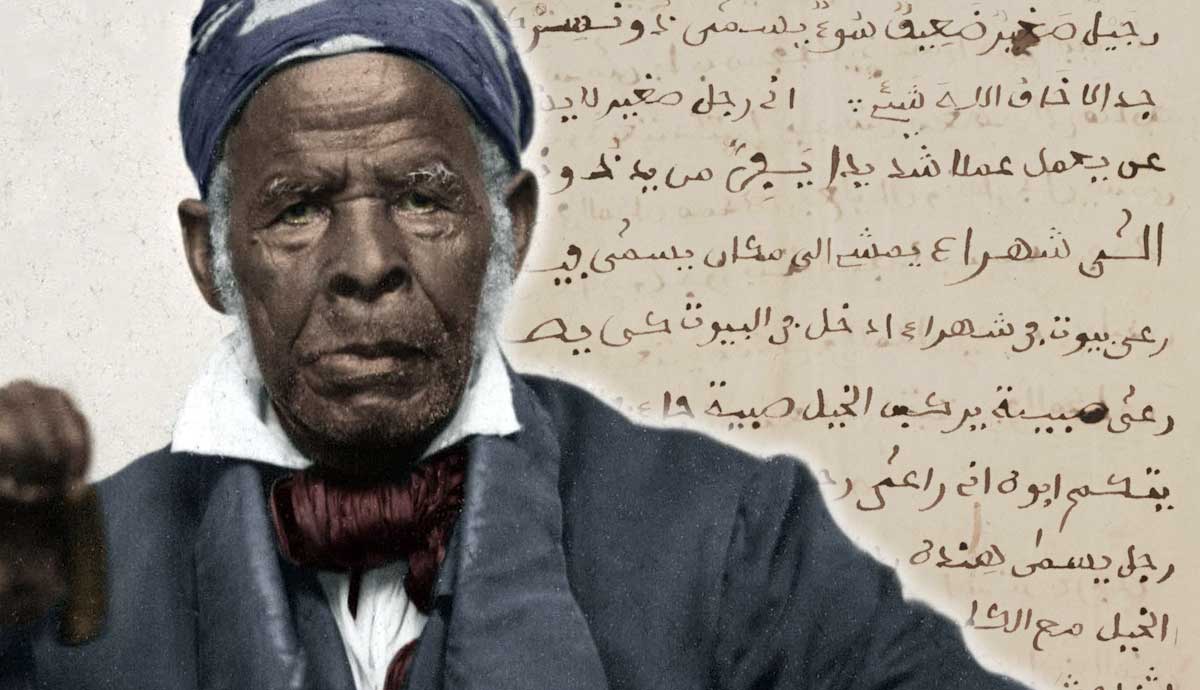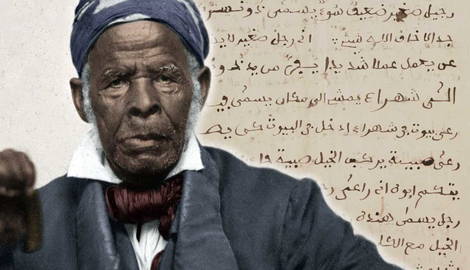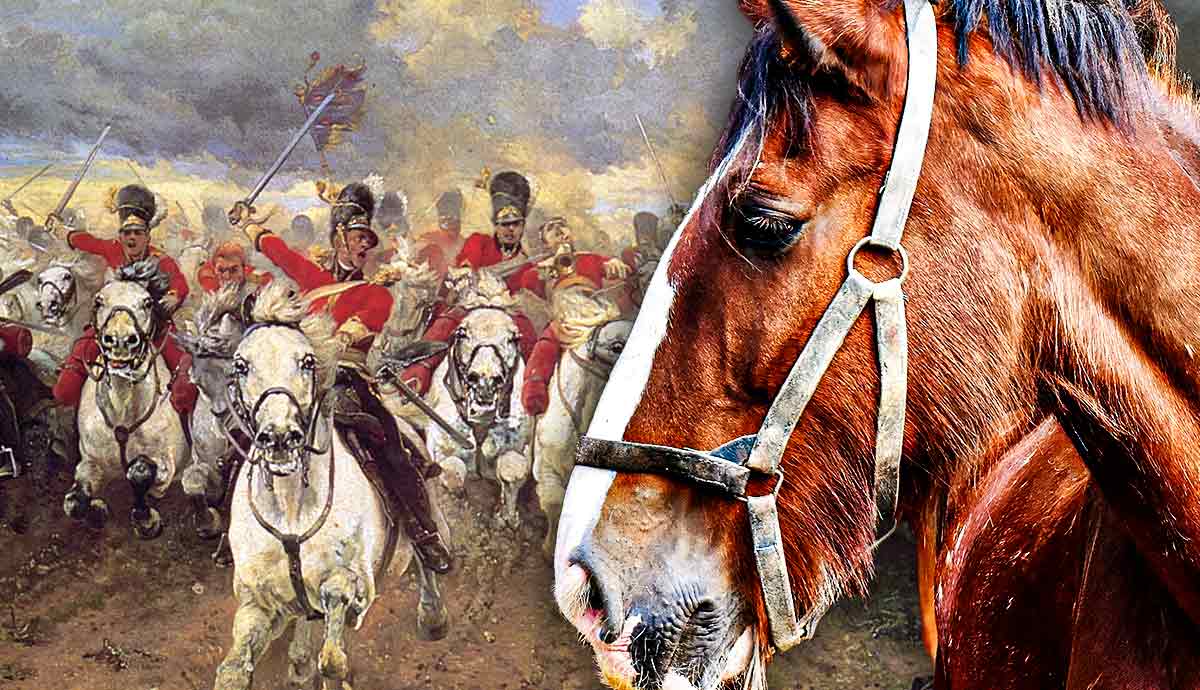
In the early nineteenth century, an enslaved African man in North Carolina captured the attention of Southern society. To White America, this man was no ordinary slave. He was literate and wrote in a strange language. He converted to Christianity. He seemed to be a scholar.
The man’s name was Omar ibn Said, and he came from a learned Muslim background in West Africa. He had been captured as an adult and sent across the Atlantic Ocean in 1807 — just as the United States Congress was finally taking steps to abolish the international slave trade. Once in North America, Omar became somewhat of a celebrity.
Although he was returned to slavery after his escape, Omar continued writing. By the time he died in 1863, he had composed numerous pieces. This included the only Arabic autobiography in America from the period. Given the significance of this document, it only makes sense to delve into the life of its writer.
Omar ibn Said’s Life Before Slavery and His Initial Capture

Omar ibn Said’s exact birthdate is not known, but scholars believe he was born around 1770 in Futa Toro, in the north of modern Senegal. As a young adult, he studied the Qur’an, Islam’s holy book and other Islamic teachings. Given his twenty-five years spent undergoing theological study and his interactions with important Muslim scholars, Omar most likely came from a wealthy family. His ethnic group, the Fulani, had converted to Islam earlier than their neighbors and they held great pride in their religious devotion. Over the centuries, many notable Fulani people had fought vigorously in the name of Islam.
Disaster would strike Omar’s life, however. War broke out between the Fulani and rival non-Muslim ethnic groups, causing thousands of people to be captured and enslaved on both sides. Omar’s prominent background could not save him. Forced on board a slave ship, he was transported across the ocean to Charleston, South Carolina — “the Christian country” as he would later call North America.

It is important to note that Omar ibn Said was by no means the only Muslim to be enslaved in the American South. According to historian Michael Gomez, a substantial number of Africans — especially from the Senegambia region where Omar came from — practiced the Islamic faith in the eighteenth and nineteenth centuries. Other famous Muslims enslaved in the United States include Ayuba Suleiman Diallo and Yarrow Mamout — both of Fulani ancestry like Omar.
Life in the United States

Omar ibn Said’s life in the United States began like that of most enslaved Africans. Stuck on a South Carolina plantation, his overseers subjected him to a brutal routine. Omar never provided specific details on the treatment he received during his early slave years, but it is safe to assume that it was not a pleasant experience. His first owner was a man named Johnson, who he described as being particularly intolerant: “a kafir (infidel) who did not fear Allah at all…” Johnson’s cruelty would soon drive Omar to escape north.
Sadly, authorities in North Carolina found him in a church and arrested him. During his two-week-long stint in jail, Omar attracted the attention of local slaveholders when he wrote in Arabic on the walls of his cell. According to Omar himself, he left the jail with a man named Bob Mumford, who he stayed with for four days. Jim Owen, the brother of North Carolina’s then-governor and Bob Mumford’s son-in-law, would purchase Omar. In his autobiography, Omar would praise the Owen brothers as “good men” who read the Bible to him. Intriguingly, he frames this point in distinctly Islamic terms, mentioning “Allah.” What could this have meant?
Writing in Arabic: Omar Records His Stories

Omar ibn Said’s autobiography is his most well-known surviving work. He first wrote it in 1831, after two decades of enslavement to the Owen brothers. The document itself is somewhat short, at only sixteen pages in the original Arabic. His other writings are shorter. A close look at the contexts in which they were created reveals some of Omar’s most cherished motivations. More insidiously, they also reveal a conspiracy by the Owen brothers and their allies to rewrite Omar’s story to suit their own agenda.
Starting after 1816, John and Jim Owen involved themselves with the burgeoning American Colonization Society. The organization’s primary motivation was to create a new homeland for freed Black people back in West Africa. Its secondary motivation was evangelical in nature. The Society’s leaders believed that Black American Christians could spearhead efforts to convert the indigenous and Muslim believers of Africa to the gospel of Jesus Christ. Who better to start with, the Owens thought, than Omar ibn Said?

In 1819, Omar drafted a letter to John Owen. The letter’s contents are intriguing. In addition to his Qur’anic passages, Omar included a talisman design in the center of the document. Most importantly, he wrote that he wanted to go back home to Futa Toro. All of this was written in Arabic. Omar was expressing his deepest desires while simultaneously keeping them hidden from his enslavers.
The Owens could not read Omar’s pleas. John Owen quickly gave it to North Carolina state Supreme Court Justice John Louis Taylor, a fellow member of the Society. Taylor correctly guessed at Omar’s prominent origins back in Africa, but he couldn’t read Arabic, either. He claimed that Omar did not want to return to his home continent — the exact opposite of what Omar had actually written. Finally, he arranged for Owen to gift Omar a large Arabic-language version of the Bible. Out of willful ignorance, the American Colonization society sought to weaponize Omar’s identity and story for their own gain. To them, “Prince Moreau” would serve as the example of an intelligent, devoutly Christian spokesperson.
Omar’s Conversion to Christianity: Reality or Ruse?

Officially, Omar ibn Said became a Christian under the oversight of Jim Owen. But how genuine was he really? That’s impossible to know with certainty. However, Omar did drop hints in his writings that he never completely left his Islamic faith behind.
In his autobiography, Omar starts off with the first verse from Surah al-Mulk, the sixty-seventh chapter of the Qur’an. The verse seems simple enough, stating, “Blessed is the One in whose hands rests all authority. And He is most capable of everything.” Yet we should view this decision by Omar in the context in which he lived. By mentioning that only God had authority in the world, was he implicitly challenging chattel slavery’s existence?

Islamic scriptures have a complicated attitude towards slavery. The earliest Muslims recognized the institution of slavery, and some even owned slaves themselves. But this doesn’t make the Qur’an a pro-slavery source; the Qur’an does allow for slaveholders to grant their captives freedom. Some verses, such as the sixtieth verse of the Surat at-Tawbah, even encourage this, categorizing the zakat charitable obligation as potentially including the liberation of those in bondage. While peoples and empires throughout Islamic history have definitely engaged in the slave trade, Islamic teachings do not inherently promote slavery.
So, did Omar ibn Said truly convert to Christianity? Probably not. In both his autobiography and other writings, he continued to quote excerpts from the Qur’an. His mentions of “Allah” attest to continued Muslim practice, as do his writing in Arabic. He may have appreciated the Bible somewhat, but he never truly embraced Christianity. Omar’s “conversion” was neither a reality nor a ruse, but an act of survival and self-preservation in the face of chattel slavery.
Omar ibn Said Today: His Impact on Modern Understandings

Omar ibn Said defies much of what we think we know about slavery in America. He was literate and never adopted the surname of his slaveholder. He wrote in Arabic — a sign of privilege at home and distinction in an environment where almost nobody knew the language. While he was not the only prominent Muslim enslaved in nineteenth-century America, he was definitely unique.
Omar has also left an impact on modern public consciousness. In early 2019, the Library of Congress digitized his writings, from his autobiography to various letters and Qur’anic passages. In May 2022, an opera by musician Rhiannon Giddens and composer Michael Abels, titled Omar, premiered at Charleston’s Sottile Theatre. A mosque in Fayetteville, North Carolina, also rebranded itself as the Masjid Omar ibn Said in 1991. His name might not be widely known today, but Omar ibn Said made his mark on American history. Against the crushing tribulations of slavery, he persisted, resisted, and wrote in a way all his own.










